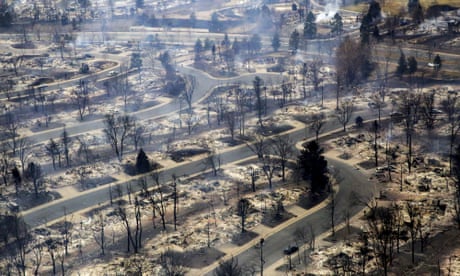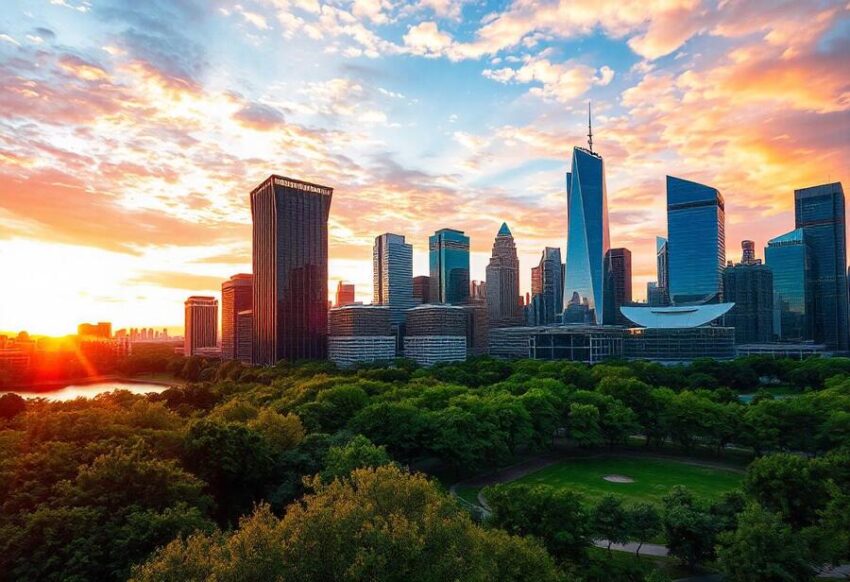- by foxnews
- 01 Feb 2025
Colorado wildfire: three feared dead and nearly 1,000 homes destroyed as Biden declares disaster
Colorado wildfire: three feared dead and nearly 1,000 homes destroyed as Biden declares disaster
- by theguardian
- 02 Jan 2022
- in news

Three people are missing and feared dead after a wind-stoked wildfire roared through two towns in Boulder county, Colorado, prompting thousands of evacuations and destroying nearly 1,000 homes, authorities said on Saturday.
Officials initially said there were no reports of fatalities or missing residents following the rare urban wildfire that erupted Thursday morning on the northern outskirts of the Denver metropolitan area.
Wind gusts of more than 100mph (160km/h) pushed flames eastward into the towns of Superior and Louisville, prompting the evacuation of both communities. In about two hours, the fire had scorched 6,000 acres (2,400 hectares), officials said.
Boulder county sheriff Joe Pelle said the three missing people, whom he declined to identify, all lived in homes that were consumed by the blaze.
Pelle said 991 homes in Superior, Louisville and in unincorporated parts of the county have been destroyed, making it the most destructive wildfire in state history in terms of residences lost.
Pelle said detectives were investigating all avenues to determine the source of ignition. Acting on a tip, the sheriff said a search warrant was issued in connection to the probe, but declined to offer any details.
Joe Biden declared the situation a disaster and experts warned that the climate crisis and suburban expansion contributed to the devastation.
Hundreds of residents who had expected to ring in 2022 in their homes were instead on Saturday starting off the new year trying to salvage what remained of them.
Families who had been forced to flee the flames with little warning returned to their neighborhoods Friday in Louisville and Superior, which have a combined population of 34,000, north of the state capital Denver, to find a patchwork of devastation.
At least seven people were reported to be injured.
Many homeowners on Saturday were already talking about building back in the same place.
Boulder county abuts the eastern foothills of the Rockies, an area known locally as the Front Range. To the west is Rocky Mountain national park.
Flames had swept east through grassland and over drought-stricken neighborhoods with alarming speed, propelled by gusts up to 105mph, as tens of thousands were ordered to flee.
Light snow fell on Friday, helping to extinguish the fire that had burned up to 10 sq miles, but snowfall in the area this winter has been late and light.
Then a further dumping of snow overnight into Saturday and frigid temperatures compounded the misery of residents left homeless.
The freeze cast an eerie scene amid the still-smoldering wreckage and the smell of smoke still permeated empty streets blocked off by national guard troops in armored vehicles.
For the thousands of residents whose homes survived the conflagration, Red Cross shelter volunteers distributed electric space heaters as utility crews struggled to restore natural gas and electricity.
But with temperatures forecast to rise well above freezing in the county on Monday and Tuesday, the risk of fire remained, even though huge wildfires are not usual in December in Colorado.
The US president on Friday declared a major disaster in the area, ordering federal aid be made available to those affected.
Superior and Louisville are filled with middle- and upper-middle-class subdivisions with shopping centers, parks and schools. The area is between Denver and Boulder, home to the University of Colorado.
Scientists say climate change is making weather more extreme and wildfires more frequent and destructive.
Temperatures have been too high. June to December 2021, was the warmest period on record, Jennifer Balch, a fire scientist and director of the Earth Lab at Colorado University, Boulder, told the newspaper.
In addition, the larger Denver metro area has grown in size with suburbs spreading and new residential neighborhoods being built in the Front Range that were just wild grassland a generation ago, leading to massive disruption for those towns when fires strike.
- by travelandtourworld
- descember 09, 2016
Thailand's Luxury Hotels Achieve Exceptional ADR Growth in 2024, Outpacing London and Singapore in Market Gains
Thailand’s luxury hotels saw remarkable ADR growth in 2024, surpassing London and Singapore in percentage increases, highlighting strong market expansion.
read more


